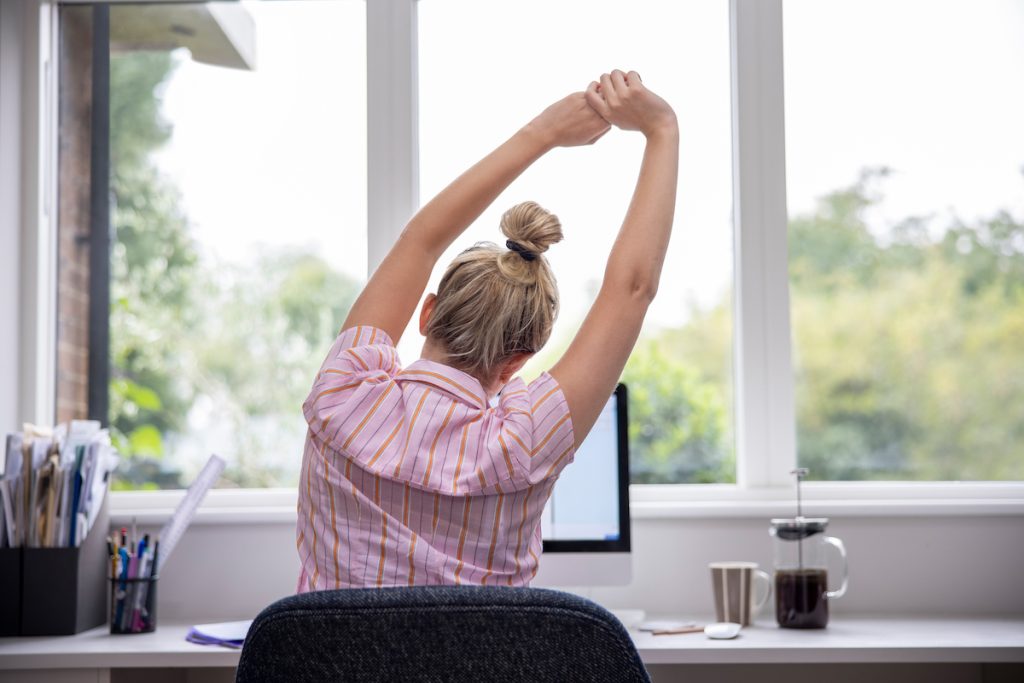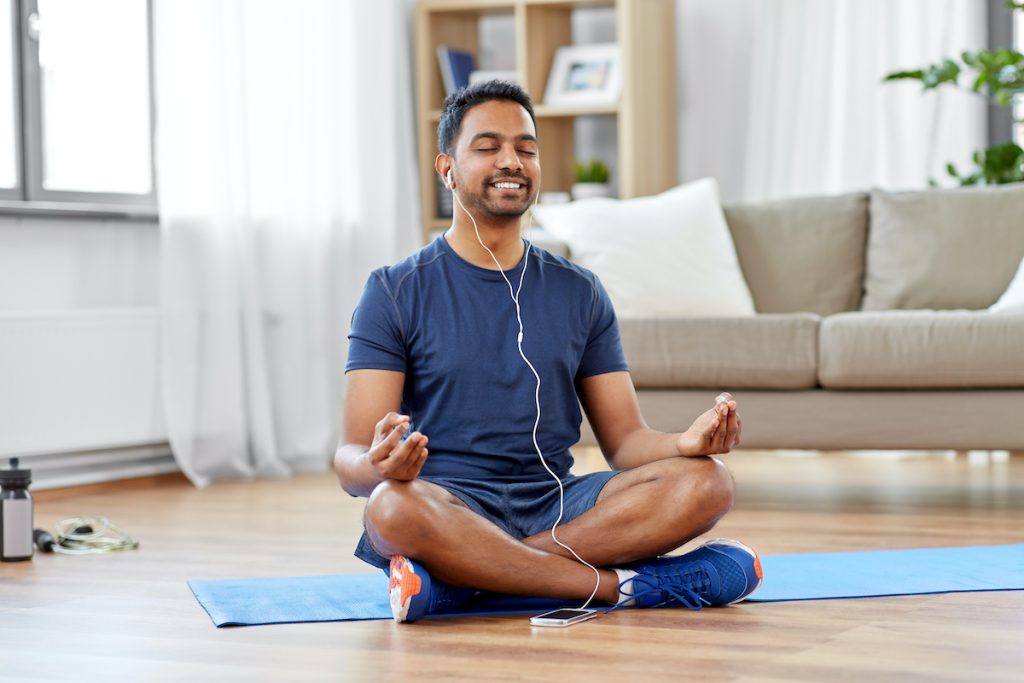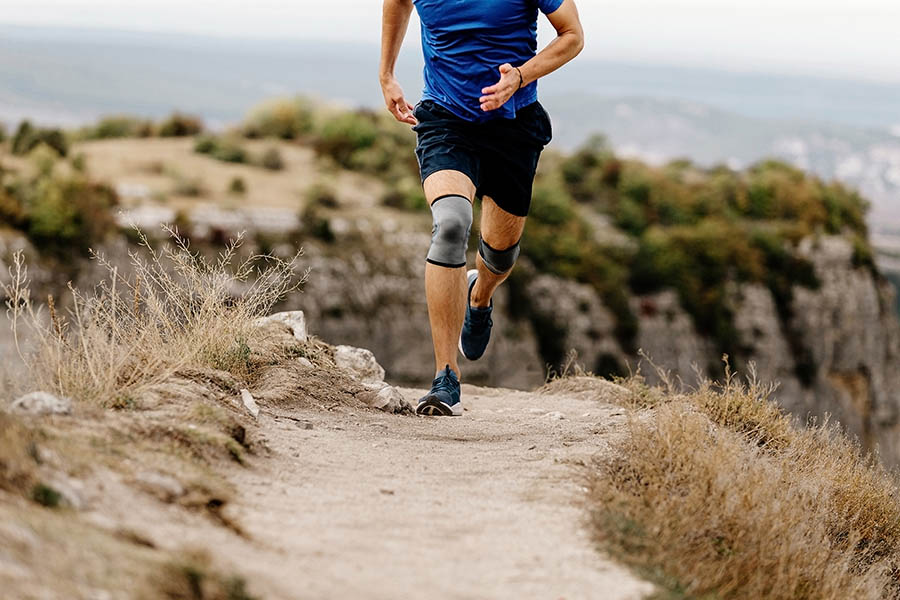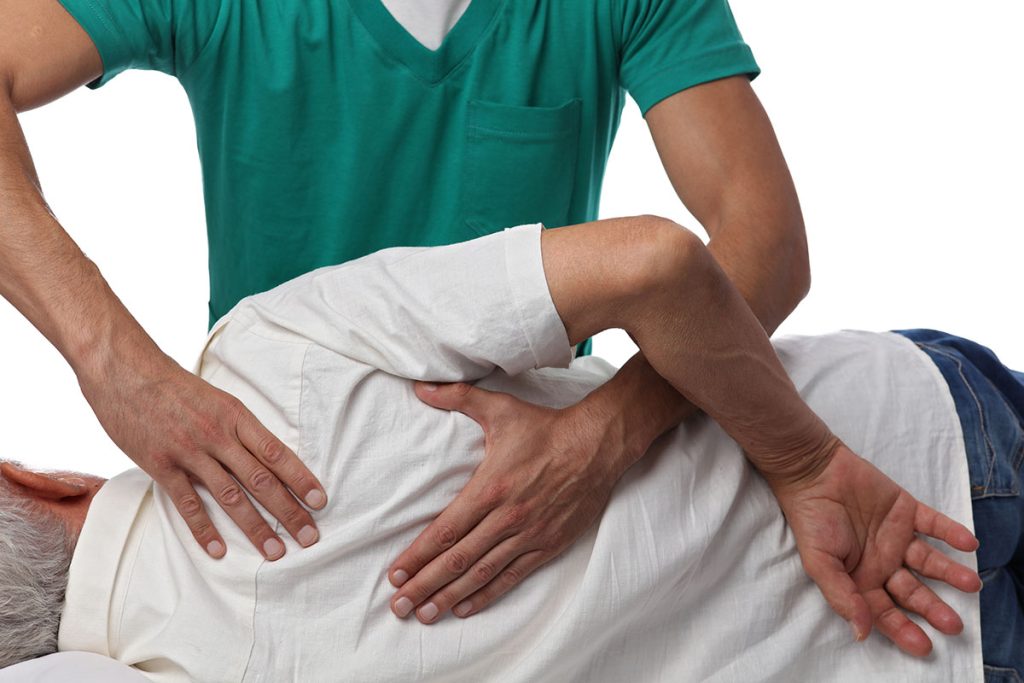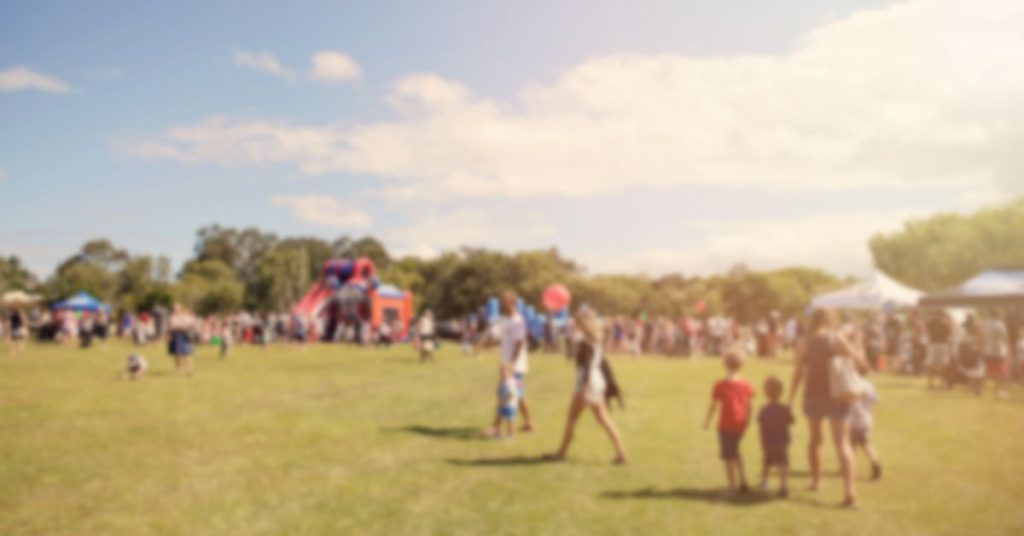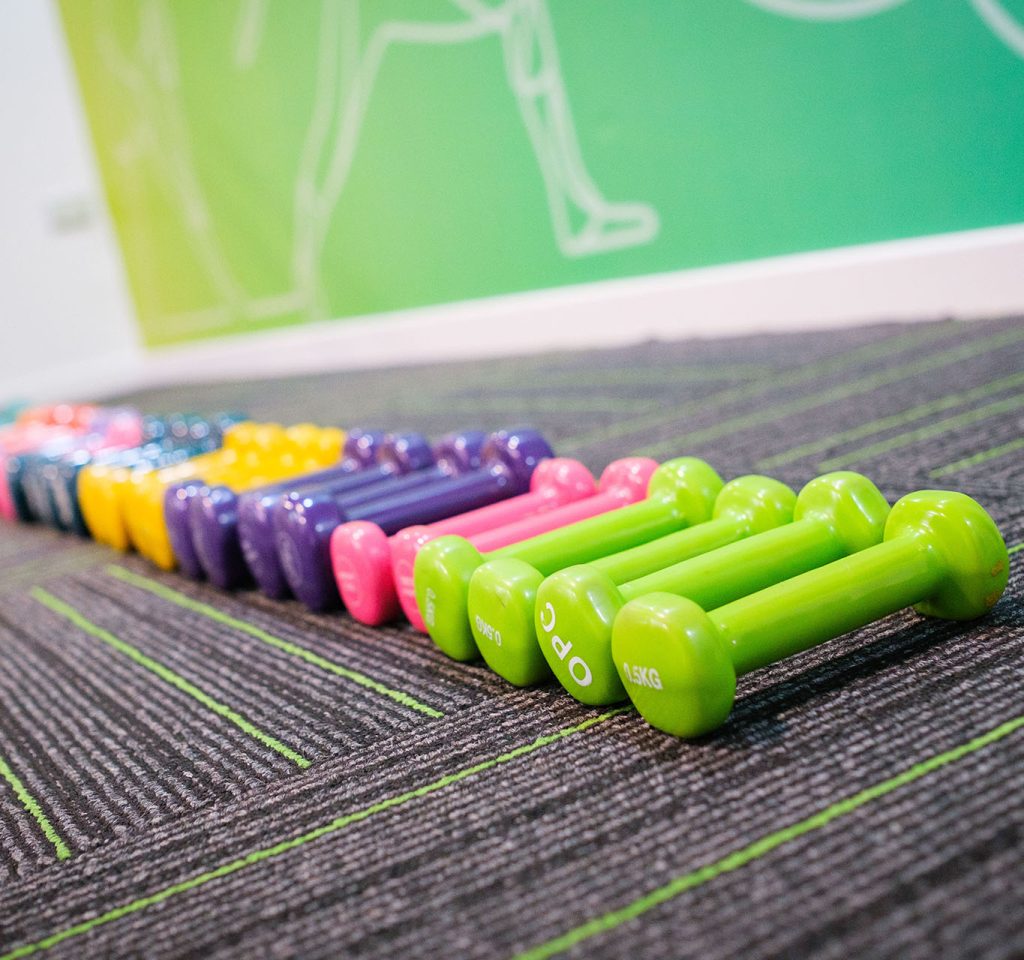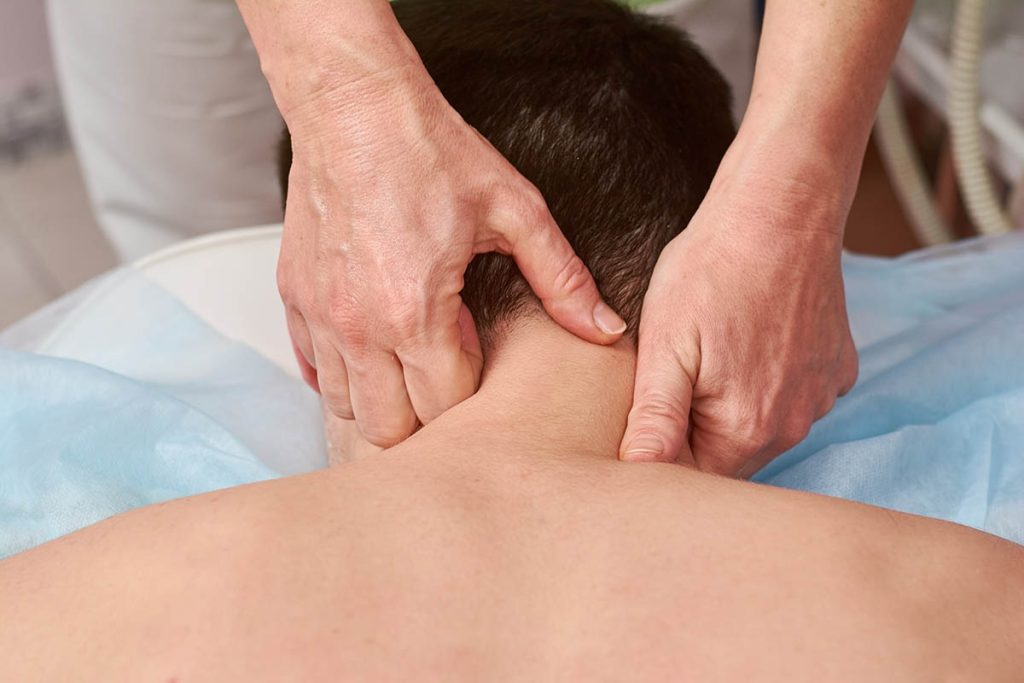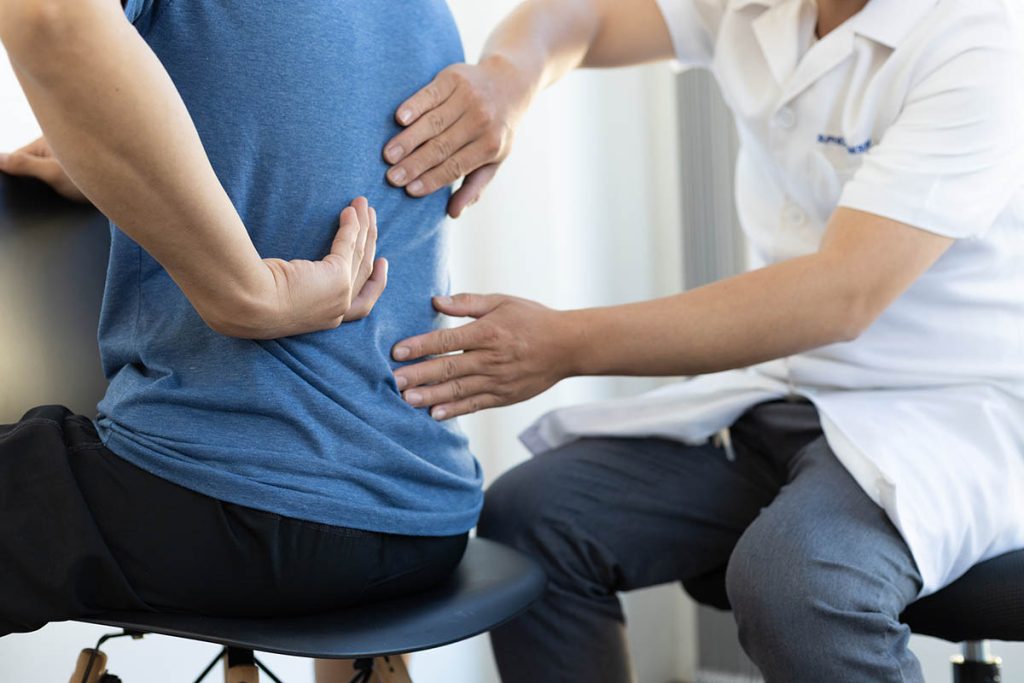Tips For Recovering From an Achilles Tendon Injury
An Achilles tendon injury can be a scary thing to experience, so people tend to be quite concerned during recovery. They happen most frequently with athletes and active people but can occur for any person at any age.
Achilles injuries can be quite severe and are commonly caused because of sports or extreme motions involving ankle twisting or turning, such as basketball, soccer or tennis, to name a few. They also are notoriously slow to heal and involve a long, arduous recovery process. But fear not, generally, people who have this injury make a full recovery and can resume their normal life without any limitations.
Read on, so you know a little more about how to recover fully from an Achilles injury.
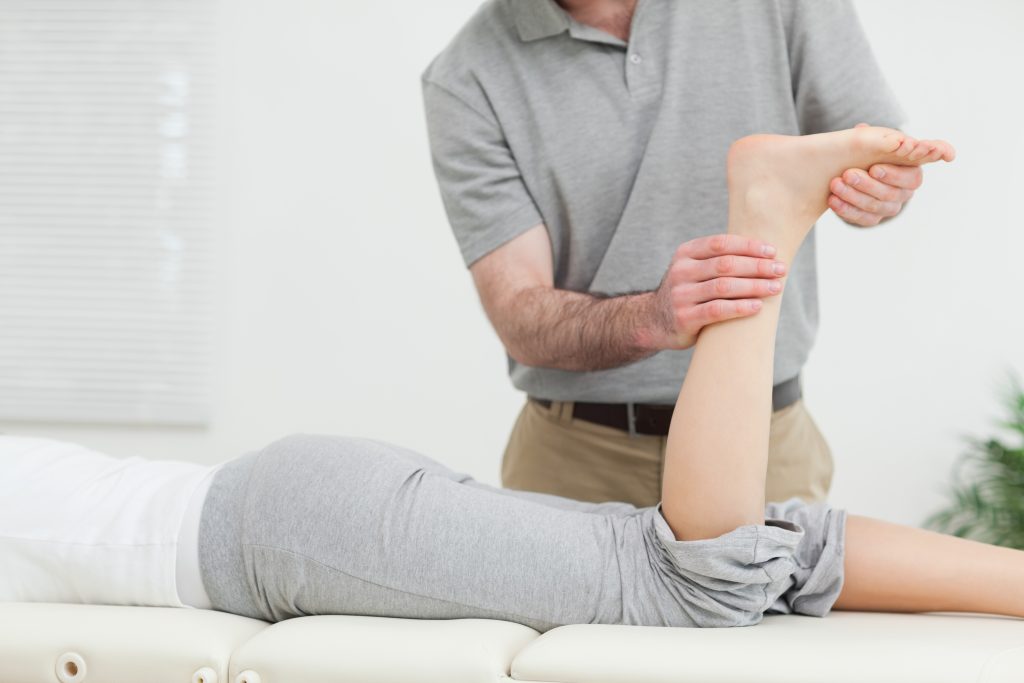
Understanding the Role of the Achilles Tendon
The Achilles tendon is the strongest and thickest tendon in the human body. It’s a fibrous band that links the calf muscles to your heel and plays a crucial role in walking, running and jumping.
Common Achilles Injuries
The two most frequent Achilles injuries are tearing/rupturing and Achilles Tendinopathy. Less common are injuries such as Peritendinitis and Retrocalcaneal Bursitis.
Essentially a tear is either a partial or complete rip through the tissue. Full tears will most likely require surgical correction and up to a 12 week recovery period. Partial tears won’t always require surgical action and can be much faster to recover from.
Achilles Tendinopathy is often caused by overuse and a general weakening of the tendon that may increase the chances of tears if not treated quickly by a physiotherapist. This injury is a broad blanket that covers several degenerative or reactive issues.
Once you notice signs of Achilles injury, visit a medical expert immediately. Often you will be able to go through the hospital physiotherapy service, however, for a more personalised and prompt experience, you can opt to use a private practice like BodyViva.
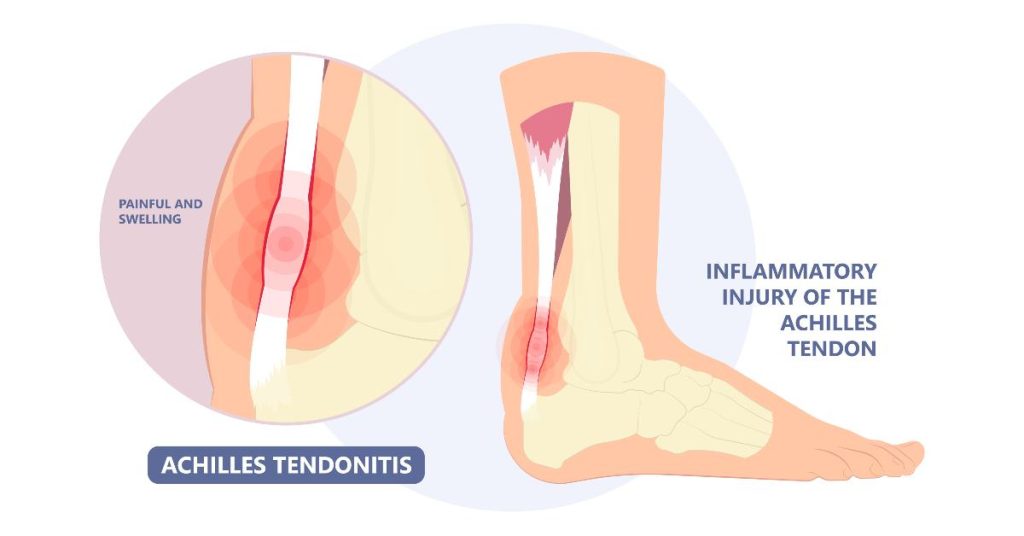
How Long Will It Take To Recover?
Depending on the severity of your injury, the Achilles tendon can take up to six to eight weeks for weight-bearing and anywhere up to a full year for a full recovery. Of course, less severe injuries won’t need such a substantial recovery time. You may even be back on your feet in a matter of days or weeks, depending on the cause.
Why Does It Take So Long?
The Achilles is in a pretty bad spot. There isn’t much fat or muscle to protect it on the lower leg, and blood flow is limited. Because of that, it is at a higher risk of infection and is more prone to injury due to external influences (lacerations, blunt force trauma, etc.).
Unlike bones and muscles, tendons don’t get a lot of blood flow, so they aren’t provided with the same levels of oxygen and nutrients that assist healing. Because of its sheer size, the Achilles is also known to have a lengthy recovery time.
First Step – Rest For A Long Time
Depending on the severity of your Achilles injury, you may need to be off your feet for a while. A full tear will need to be kept relaxed for up to 2-3 weeks in a plaster cast without any weight-bearing.
Your treatment will depend on many factors, the main being the severity of the injured site. Both surgical and non-surgical approaches involve keeping the foot flexed downward to promote the best healing environment so there is no tension in the tendon. Any flex upwards may re-aggravate the injury.

Slow Restrengthening & Training
Your physiotherapist will provide a plan tailored to your injury. That treatment plan will include time spent in a cast and moon boot followed by physical therapy and set exercises.
You’ll slowly return to walking with the moon boot’s assistance once recommended by your physiotherapist. You’ll likely return to full weight-bearing without foot protection after the 10-week range after surgical recovery.
Keeping Fit While Injured
Exercise promotes recovery. While you’re off your feet, still try and find time to exercise your upper body. Weight training is recommended such as chest and arm exercises. Only try leg exercises that have been recommended by your physiotherapist.
If you are in a moon boot, you may be allowed to try a larger list of exercises, such as light squats and lunges, plus other exercises that involve your legs, such as scrunches and Russian twists. Hydrotherapy and exercise bikes are a fantastic way to keep up your cardiovascular fitness.
Because your tendon has a low blood flow, consistent exercise can promote injury recovery by increasing the level of oxygen and nutrients that are reaching your injury.
Strengthening After Injury
Once you start walking again without support, you’ll still feel a long way from being your full self. Walking may include pain in your Achilles while the new scar tissue stretches out. It is often advised to still rely on support in the early days not to overexert yourself.
When your physiotherapist deems that you’re ready for resistance exercises, they will provide you with a circuit focused on regaining strength and flexibility. Initially, it will be to regain basic control of function (such as walking, standing on your tiptoes, etc.). A separate program can be created to prepare you for a return to sport or other higher intensity activities.
How Often Should You Do Focuses Injury Exercises
Once you’re allowed to exercise your tendon, finding the best schedule is up to you and your physiotherapist. Daily exercise is ideal as long as you can comfortably do so. If you feel any ongoing fatigue or unusual pain, we recommend stopping immediately and taking it easy for a few days. It’s still important during your breaks to exercise the rest of your body to continue and promote your healing capability.
Achilles Physiotherapists – No Long Wait Times & The Best Help To Get You Back On Your Feet
At BodyViva, we can help your recovery journey from Achilles tendon injury go smoothly. Our team of professional physiotherapists will guide you through every step until you’re fighting fit again.
If you are going through a hospital’s physiotherapy process, simply ask to be transferred into our care. We guarantee prompt appointments and complete transparency to answer any of your questions.


